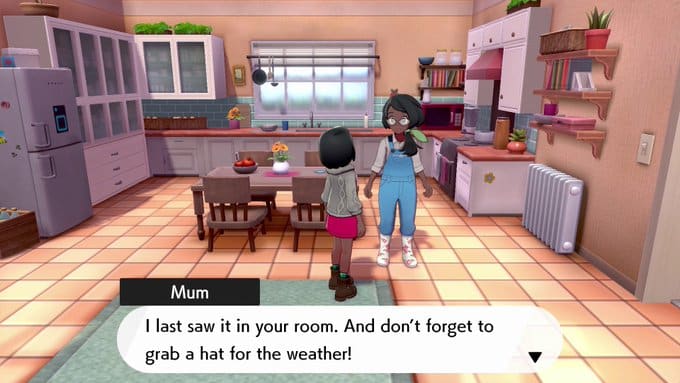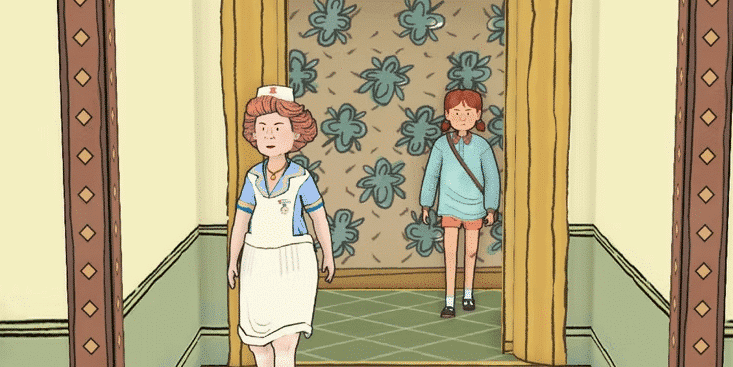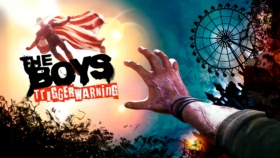What does it mean to be a mother? If you’re seeking the answer in video game form, you’re more than likely going to come up short. There’s a wealth of games focused on father figures, particularly from the last decade and a half, but centering motherhood in a similar fashion has yet to catch on as a burgeoning trend.
Video game mothers are more often than not relegated to a tragic backstory footnote for the protagonist, typically dead or otherwise out of the picture. For those that manage to make it through the opening story beats, they’re often supportive background characters, giving out helpful tips or items that could otherwise come from an inanimate object and still have the same impact on the overall story (see Pokémon mums as a prime example).

This is in direct contrast to the tried and true trope of broken men taking on father-figure roles (often for orphaned daughters with world-altering potential). Joel from The Last of Us, Geralt from The Witcher 3: Wild Hunt and Lee Everett from The Walking Dead all come to mind as part of the tide of often reluctant father types taking on the world with their adoptive wards. Similarly, Kratos from God of War and its sequel, God of War Ragnarok, also explores all that it means to raise a child as a father, both good and bad. While these video game dads have become a triple-A and indie game mainstay, it poses the question; where are all the mums?
Doomed to be traumatised
Interestingly, a number of mother characters we do see (very rarely the protagonist) in games are typecast as monstrous creatures (such as broodmothers) or dropped into horrific scenarios – perhaps a nod to the perceived abject horror of motherhood and childbirth.
The psychological horror game The Park is a gory look into post-partum psychosis and the terror of being a mother with an ultimately disastrous outcome for both parent and child. In The Park, the main character Lorraine searches for her lost son in an alternative, nightmarish version of a theme park. While the story of a mother braving horrific scenarios with the sole purpose of finding her child does prove to be compelling, the resulting story payoffs don’t exactly present a nuanced glimpse into being a mum, instead punishing Lorraine for past failures and subjecting her to further mental trauma.

Despite the swathe of grisly depictions of motherhood which don’t typically provide a multi-faceted look into the caregiver role, this isn’t to say that anguish and pain inflicted upon mothers in video games completely discounts the storytelling or thematic value.
Freya from God of War and Ragnarok undergoes a character transformation through her role as a matriarch (and a grieving mother by the second game) that is as captivating as it is tragic. Freya’s tale of giving everything to protect her child, only to become their very destruction and then becoming forced to reckon with this truth is a difficult, but much more satisfying glimpse into motherhood as a storytelling device. The protection spell she places upon Baldur to subvert the prophecy of his death becomes his unravelling, rendering him unable to feel anything at all and filling him with hatred for his mother for taking away all of life’s pleasures and pains.
Read: What can games tell us about girlhood?
Baldur is unable to reconcile with Freya for all that she has taken from him, showing a side of motherly love that is so all-consuming and suffocating that it ruins what it sets out to protect. Her rage and dogged quest for revenge in the aftermath of Baldur’s death gives an insight into a different side of motherhood.
Being a mother is not just cloying and soft, but also feral, desperate, and primal. God of War manages to capture this through Freya’s story arc as she continues to make sense of the world after his death, marked with eyeliner almost permanently stained by grief-stricken tears for her lost child.
Exploring the subtleties of motherhood
While a number of games featuring mothers lean into the agony and grief, and resultant loss associated with being a parent (whether literal or figurative in the sense of losing the child one raises, to then meet the adult they’ve become), this isn’t to say all stories end traumatically for the few game mums that do inch into the spotlight.
Wayward Strand stands out as an example of a much more mundane mother-and-child relationship (albeit on a floating airship in the 70s) between the protagonist, Casey Beaumaris and her mum, Ruth. Antagonistic at times, thanks to Casey’s frustration with Ruth’s insistence that she be more helpful around the aged care home, but also equally loving, Wayward Strand gives players a glimpse into a much more subtle, but still nuanced, depiction of motherhood through vignettes at the beginning and end of each game day.

Through the few mothers getting a share of airtime in games, it’s clear that there’s a whole lot more to their role as maternal figures than dying to further the hero’s journey or dispensing items like a glorified vending machine.
While many games continue to court fatherhood as an ideal base for character and story development, mums have plenty more to give as a basis for crafting deeply moving (or purely enjoyable) tales, both as protagonists and supporting characters. We’ve seen snippets of motherhood creeping through other titles like Undying, Earthbound, and What Remains of Edith Finch, and hopefully, we’ll see more in the years to come.
In the meantime however, I’ll patiently wait for more games to cover the mostly untrodden ground of exploring the multitudes of motherhood, for better or worse.
Must-Read Casino & Betting Guides
Check out our featured gambling guides to find top casinos, no verification sites, fast withdrawal platforms, and more.





